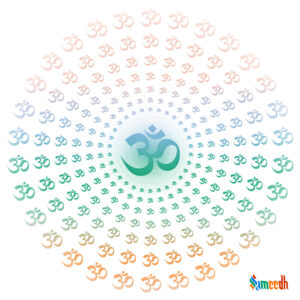Dvaita Vedanta, also known as dualistic Vedanta, is a prominent school of Hindu philosophy that emphasizes the eternal and ontological distinction between the individual soul (jiva) and the Supreme Reality (Brahman).

Dvait Vedanta is a school of Vedanta philosophy, one of the major traditions within Hindu philosophy. Founded by the 13th-century philosopher-saint Madhvacharya (also known as Ananda Tirtha), Dvait Vedanta posits a fundamental duality or distinction between the individual self (Jiva) and the supreme reality, Brahman.
The term “Dvait” translates to “dualism” or “duality,” and it emphasizes the distinction between the individual soul and the divine. According to this philosophy, the individual souls (Jivas) and the Supreme Being (Brahman) are distinct and eternal entities. They are not identical, and there exists an inherent difference between them. Unlike Advait Vedanta, which posits the ultimate oneness of the individual soul and Brahman, Dvait Vedanta asserts the inherent duality between them.
Dvait Vedanta asserts that the universe is fundamentally dualistic, with a clear distinction between the individual souls and the Supreme Being. Dvait Vedanta is characterized by its strong emphasis on theism and devotion (bhakti) to a personal deity, particularly Lord Vishnu. According to this philosophy, Vishnu is the Supreme God who governs the universe, dispenses justice, and grants liberation to his devotees. The relationship between the individual souls and Vishnu is one of love, devotion, and surrender.
Key aspects of Dvait Vedanta include:
- Individual souls (Jivas): Each individual soul is considered unique, eternal, and distinct from all others. These souls are subject to the cycle of birth, death, and rebirth (samsar) based on their karma.
- Supreme Being (Brahman): Brahman is the ultimate reality, the creator, sustainer, and destroyer of the universe. In Dvait Vedanta, Brahman is viewed as a personal God, who is compassionate and loving towards his devotees.
- Devotion (Bhakti): Bhakti or devotion is considered the most effective means to attain liberation (moksha) in Dvait Vedanta. Devotees engage in loving devotion (bhakti) towards the Supreme Being, seeking union with the divine.
- Prayer and Ritual: Dvait Vedanta places significant emphasis on prayer, ritual worship, and religious ceremonies as means of expressing devotion and seeking the grace of the Supreme Being.
- Scriptural authority: Dvaita Vedanta draws its philosophical principles from sacred texts such as the Vedas, the Bhagavad Gita, and the Puranas, particularly those texts that extol the glories of Lord Vishnu and his incarnations. Commentaries and works by prominent Dvaita Vedanta scholars, such as Madhavacharya (Madhvacharya), elucidate the teachings of this philosophical tradition and provide systematic interpretations of the scriptures.
- Qualitative Difference: In Dvaita Vedanta, while the individual souls are distinct from Brahman, they share a qualitative similarity with Brahman in that they possess consciousness and other divine attributes in a limited manner. However, there is a qualitative difference between the individual souls and the Supreme Reality, with Brahman being infinite and perfect, whereas the individual souls are finite and subject to limitations.
Dvaita Vedanta has played a significant role in shaping Hindu theology, spirituality, and devotional practices, particularly within the Vaishnavite tradition. Its emphasis on the eternal distinction between the individual soul and God, coupled with the path of loving devotion, continues to inspire millions of devotees in their spiritual journey towards liberation and divine union.